Home \ Project News \ Q: How many steps does it take for a grain of rice to be green and organic?
Source: Nanjiang Project Team
At the end of 2021, when the person in charge applied for organic rice certification for the rice planted in the project, and entered the 24-month conversion period of organic rice certification, the villagers were content and happy.
This kind of happiness far exceeds the excitement that they can eat more bowls because the rice is delicious.
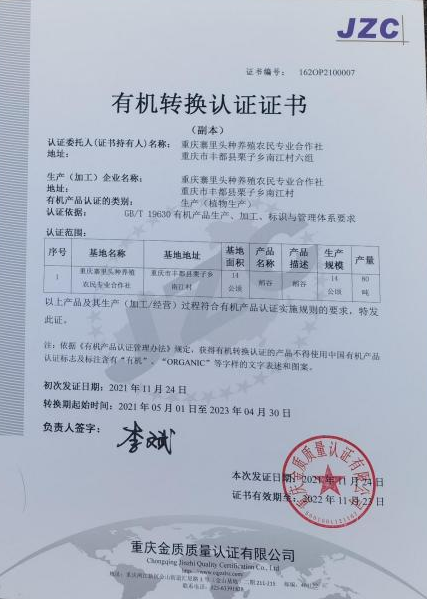
In order to promote the sustainable development of rural communities, improve villagers' livelihood and increase family income, we are carrying out a sustainable livelihood development project in Nanjiang Village, Fengdu County, Chongqing.
Developing sustainable three-dimensional ecological agriculture is the key goal of the initial design of the project, because for native farmers, the few acres of fields in their homes are their peace of mind.
How can we help the villagers through agricultural planting to increase production and income? It is impossible to simply rely on the original planting mode.
To this end, the project personnel went to villages and households, investigated the local situation, understood people's wishes, and visited agricultural experts in relevant government departments in the county. Finally, the organic rice varieties suitable for local planting and development were obtained.
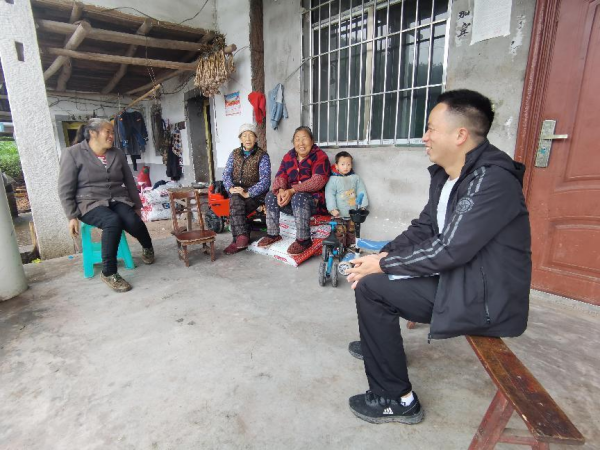
Project personnel visit home
To realize the organic cultivation of rice, we must first change the traditional cultivation methods of villagers.
But in the villagers' consciousness, these thoughts have been deeply rooted. Coupled with the loss of labor force, they think that applying chemical fertilizers and pesticides is the guarantee to ensure a good harvest of rice in the coming year. If no fertilizer or pesticides are applied, they don’t expect a good harvest in the coming year.
High-quality rice seeds were distributed to the villagers, and they ploughed, sowed and transplanted rice seedlings. In a blink of an eye, the seedlings grew over the knees, but the villagers began to worry about the weeds in the rice fields and the nutrition needed for the seedlings to grow.
How can it grow well without applying chemical fertilizers or pesticides? Several villagers complained on the ridge. There were even villagers who quietly carried pesticides to fight insects.
After constant persuasion and explanation, experts from agricultural departments were invited to train the villagers and go to the fields for guidance. The villagers' hanging hearts relaxed a little.
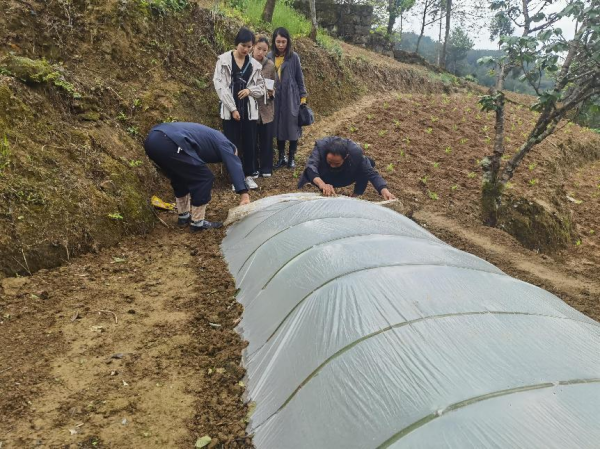
Experts check seedling growth.
"Of course, organic rice is not planted and grows freely. It requires methods."
The project leader immediately introduced, "We distributed oil cake waste as green manure, and also bought ducklings for villagers to place into rice fields, specifically to deal with those weeds and insects. Speaking of oil cakes, you certainly don't know what this is, do you? It is the residue left after villagers take rapeseed to squeeze oil. After fermentation, it becomes organic fertilizer, which is pure green, non-toxic and pollution-free and conducive to rice growth. "
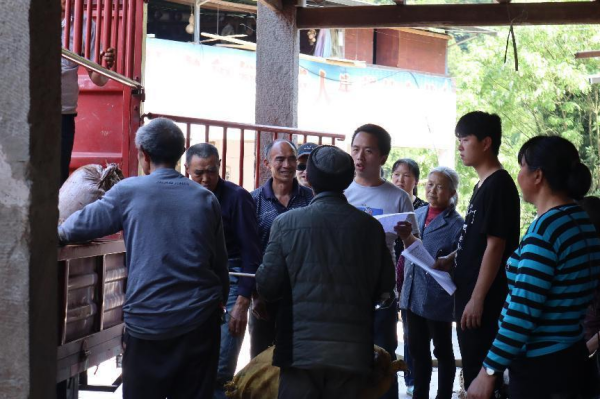
Oil cake delivery
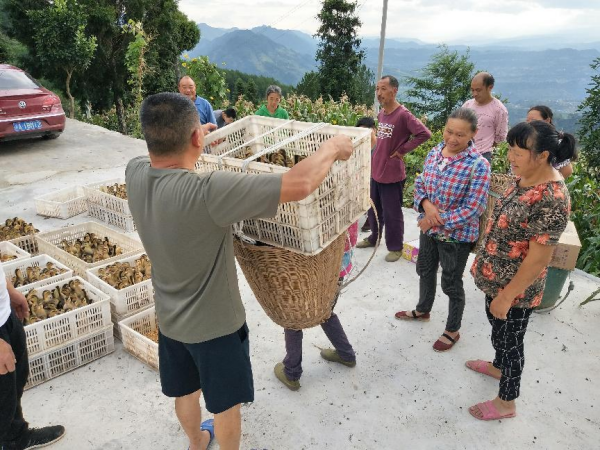
Distribution of ducklings
In 2021, Nanjiang Village distributed 7.5 tons of green manure and 3,000 ducklings. In October, more than 60,000 kilograms of rice were harvested.
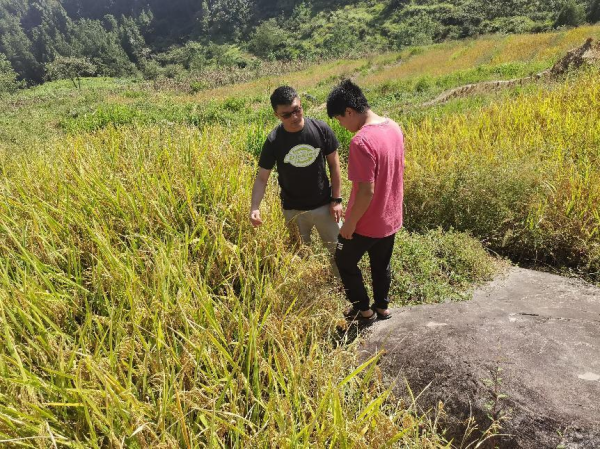
Spot check on organic certification of rice
After sample testing, all the rice planted and sent for inspection in the project met the requirements of 31 indexes of national organic rice. Among them, the starch content is close to the critical value, and the heavy metal content and pesticide residue are not detected. In December 2021, Chongqing Institute of Quality Measurement and Testing and Chongqing Gold Quality Certification Co., Ltd. Issued the first conversion certificate to organic rice.
The rice that was once sold in the market for a few yuan has now sold for 24 yuan per kilogram.
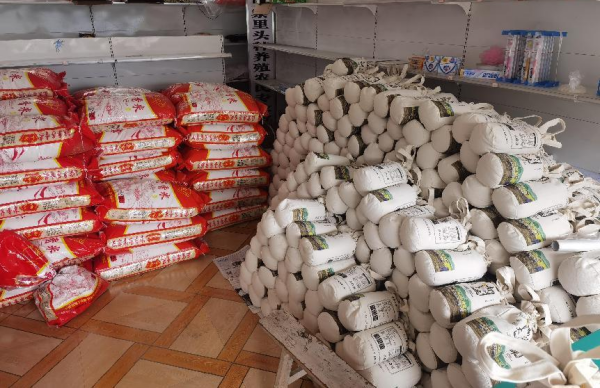
Uniformly packaged rice
"Now, the selling price of rice has become higher, and cooperatives are also looking for sales channels, unified packaging and unified sales. But to be honest, this rice is really delicious. I have to eat an extra bowl of rice every meal. I think I'd better stay and eat it myself, and not sell it. " Some villagers gave this feedback.

rice
Spring returns to the earth in a blink of an eye, and everything recovers. Nanjiang village has ushered in a new year's busy spring ploughing.
Faced with the unique advantages of Nanjiang Village and the influence of rice planting last year, the project continues to vigorously develop green organic rice planting, making the ecological, safe, green and organic "Zhaitouli" brand louder.
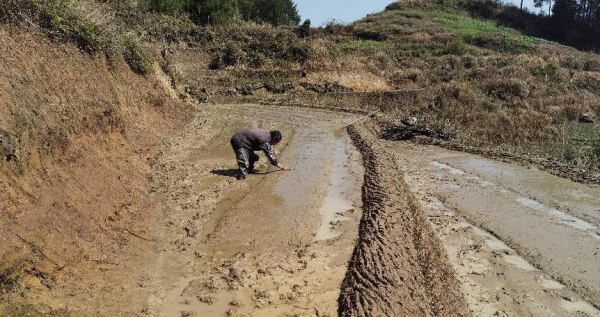
Whole field sowing
Different from previous years, this year's Nanjiang village is called a lively one.
The villagers actively participated in the arrangement of the project, and everyone made an appointment to listen to the explanation of the technical guidance experts of organic rice planting. Everyone is looking forward to a bumper harvest in the coming year as always.
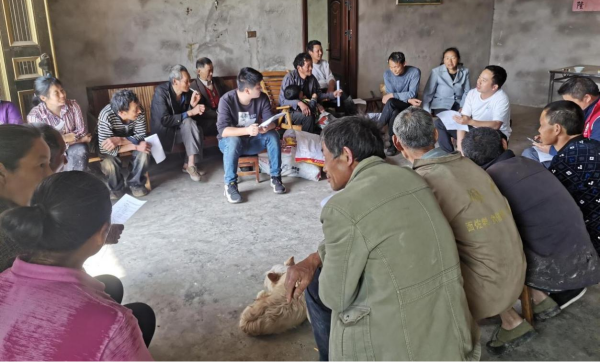
Organic rice planting training
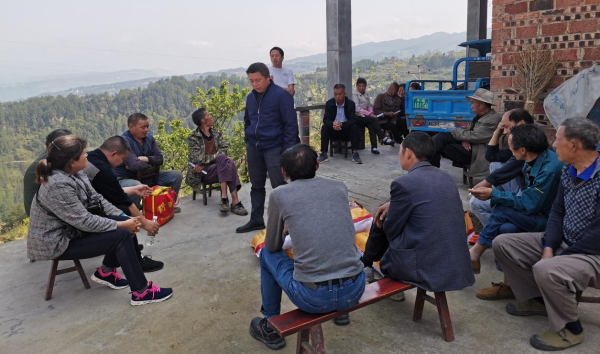
Organic rice planting training
Just after beginning of spring, the villagers came to ask when they could get rice seeds this year.
In March, according to the demonstration number and planting area of the villagers' voluntary planting, the project provided the rice seeds and planting technical information to the villagers in time.
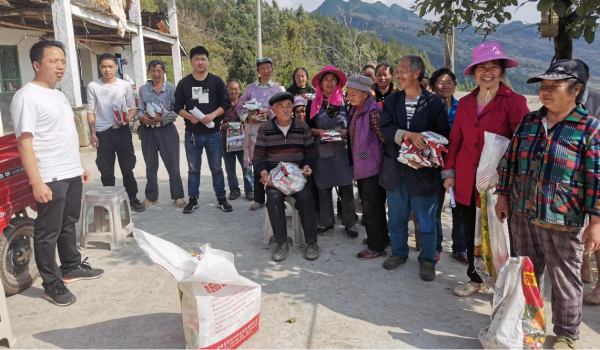
Release rice seeds
The fellow villagers who got the rice seeds were beaming on the spot, looking forward to a bumper harvest in September.
Project introduction:
Nanjiang Village, Fengdu County, Chongqing implements the sustainable livelihood development project supported by the Chongqing Representative Office of the International Federation Humana People to People (Switzerland) in cooperation with the Rural Revitalization Bureau of Fengdu County. Starting from February 1, 2020, the project period is three years. Through the establishment of farmers' mutual aid groups and core groups, the project distributes high-quality rice seeds to villagers to carry out ecological rice conversion, plants fruit trees, raises free-land chickens, organizes villagers' training, establishes self-owned brands and a direct selling cooperative, and sets up an Internet marketing platform, thus helping villagers develop suitable industries and driving economic income growth. While fundamentally promoting rural development, the project also pays attention to the improvement of rural women's self-awareness, arousing women's enthusiasm, doing a good job in household environmental sanitation, and promoting the construction of living ecological environment. At the same time, develop production with women as the main force, and encourage them to actively participate in the family affairs and rural production activities.

This article only represents the author's personal views.